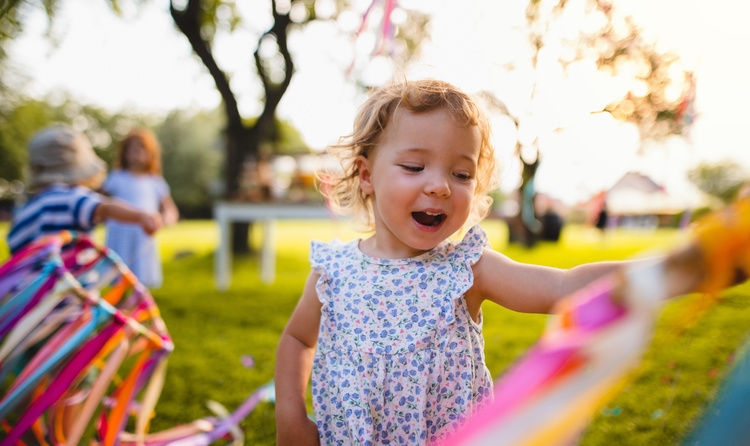Once your child hits toddlerhood, you can help them with social development by introducing them to playdates. Social skills can vary from toddler to toddler, so the experience of making new friends will be different for each family, but there are a few things parents can do to ease the process.
Preparing your toddler for playdates
Social skills need to be taught and learned. Things like sharing may not come naturally or easily to some toddlers. Before your little one’s first playdate with another toddler, you can help them practice by being their first playmate!
Try playing turn-taking games, playing with blocks, and dancing with your little one. This can help get them used to the idea of being patient, creative, and free with another person.
Organizing playdates
When your child is about two years old, they will generally play with whoever is around them instead of choosing long-term friends. If you have young children in the family or friends with kids around the same age, they could be your little one’s first playmates.
As your toddler grows up, they may start to form connections with other kids in their playgroup, childcare, or preschool. If you have a slightly older toddler, try asking them about who they like spending time with at preschool. Try to speak with the parents of your toddler’s friends at pick-up time – if you get along, you could organize a playdate for another time, and you may make a new friend yourself!
You could also chat to the childcare worker or teacher looking after your little one and ask them about which children seem to be getting along with yours.
A good first playdate could be to meet at the park or to invite another parent around for a cuppa while your little ones play. Plan to keep them short and sweet – maybe around 45 minutes – so you can try to end on a high note before anyone gets tired or cranky.
Helping playdates go smoothly
Before your toddler’s playdates, consider the following:
- If you are hosting, you could save some tension by putting away any favorite toys or anything your tot may be protective of. Ask them which toys they’d be happy to share and leave those out.
- Set up activities that allow toddlers to play near each other without having to take turns. This could involve playing with blocks, playing at the park, drawing, dancing, exploring a blanket fort, or anything else that gets their imagination going beyond playing with one specific toy.
- Make sure your little one has eaten to minimize the chances of hungry crankiness during the playdate.
- Stay with your toddler and their new friend until they settle into their rhythm. Give them time to get comfortable before you step away.
- Keep them within your line of sight so that you can supervise them. Seeing you can also help your child feel safer and may make it easier for them to enjoy their play.
Social skills for life
As your little one grows up, they will experience more exposure to new people. Once they’re at primary school age, they’ll start making friends on their own. You can support your child through the years to come by setting them up with a good foundation of social skills from a young age.
Friends can help build our self-esteem and solve problems with us. Friends in early life help build emotional intelligence and confidence and are at the very least good practice for making healthy connections later in life, or they could be a friend for life!
Recommended Articles:
https://www.babybunting.com.au/baby-talk-blog/tips-for-new-parents-preparing-for-a-babysitter/
https://www.babybunting.com.au/baby-talk-blog/introducing-your-toddler-to-safe-water-play/



